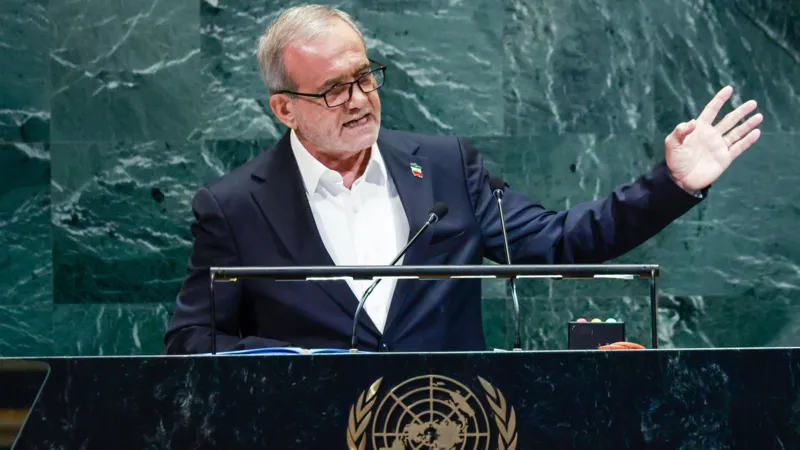The United Nations is preparing to reimpose sweeping economic and military sanctions on Iran, nearly a decade after they were lifted under the 2015 nuclear deal. The move follows accusations by the UK, France, and Germany that Tehran has failed to honour its commitments, triggering a 30-day window for diplomacy that has now expired.

In response, Iran recalled its ambassadors from the three European countries, with President Masoud Pezeshkian condemning the sanctions as “unfair, unjust, and illegal.” He rejected a US proposal to surrender Iran’s enriched uranium stockpile in exchange for a temporary exemption, insisting such terms would leave the country vulnerable to constant pressure.

Pezeshkian maintained that Iran has no intention of developing nuclear weapons, blaming the US and Israel for escalating tensions. He stressed that Tehran would remain within the Non-Proliferation Treaty but demanded assurances that its nuclear sites would not be attacked.
A last-ditch effort by China and Russia to delay the sanctions for six months failed to secure enough support in the UN Security Council.

The sanctions, which take effect at midnight on Sunday, include an arms embargo, a ban on uranium enrichment, restrictions on ballistic missile activity, asset freezes, travel bans, and authorization for states to inspect Iranian cargo.
Iran accelerated its nuclear programme after the US, under then-President Donald Trump, abandoned the nuclear deal in 2016. Negotiations to revive the agreement have since stalled, and Iran barred inspectors from the International Atomic Energy Agency (IAEA) after Israeli and US strikes on its nuclear facilities in June. The IAEA confirmed this week that limited inspections have resumed, though Iran has warned they may be halted again if sanctions return.

Western powers and the IAEA remain sceptical of Iran’s claim that its nuclear activities are purely peaceful. Meanwhile, Russia has deepened cooperation with Tehran, signing a $25 billion deal to build four nuclear reactors in southern Iran.
European leaders had urged Tehran to return to talks and cooperate fully with the IAEA to avoid renewed sanctions. But with diplomacy stalled, the sanctions are set to add further strain to an already volatile situation in the Middle East.




